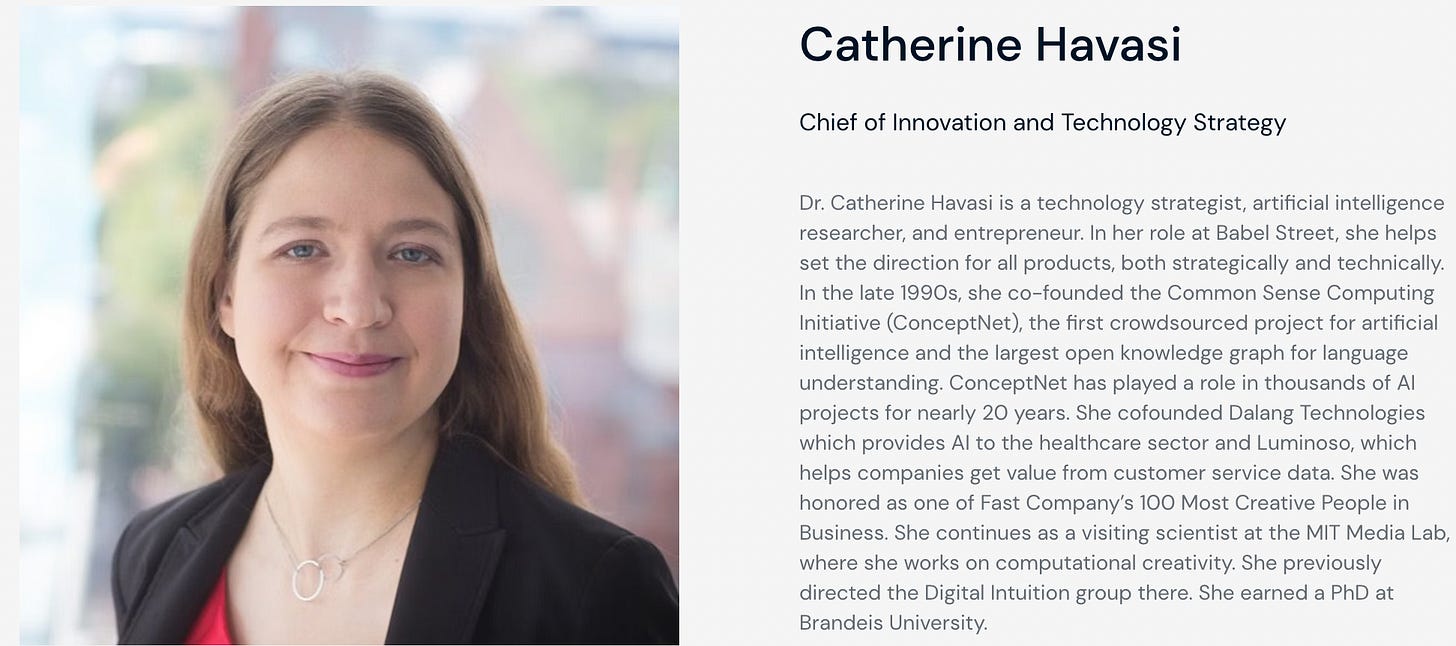Cellphone location-tracking firm follows in Palantir's footsteps with Large Language Model
Babel Street today announced the launch of its "Insights GPT" large language model. The company is notorious for the cellphone location-tracking tool it sells to the U.S. government.
The Reston-based commercial surveillance firm Babel Street today announced the release of its artificial intelligence language model, which it calls “Insights GPT” in an echo of OpenAI’s trendsetting “ChatGPT” tool. (“GPT” stands for “Generative Pre-trained Transformers” and builds upon a variant of the transformer architecture introduced by Google researchers in 2017. In full disclosure, I worked at Google Research at the time.)
Babel Street is following in the footsteps of the publicly-traded data fusion company Palantir, whose stock has more than doubled since its May low, largely as a result of releasing its “Artificial Intelligence Platform” — or “AIP” — large language model interface. Palantir has been chaired by billionaire Peter Thiel since 2003 and was particularly controversial for its Trump-era contracts with U.S. Immigration and Customs Enforcement. Prior to the company turning a profit, Palantir compensated its self-described “socialist” CEO Alex Karp $1 billion in 2020.

Babel Street’s attempt to rebrand itself away from its image as a tool for the U.S. government to spy on cellphones into an artificial intelligence company arguable began in earnest in November of last year, when Babel acquired the “Rosette” natural language processing tools and team from Basis Technology. Perhaps the highest profile hire from the acquisition was Catherine Havasi, who transitioned from BasisTech’s Chief Product Officer to Babel’s Chief of Innovation and Technology Strategy as part of the deal.

According to internal statements viewed by the author from Babel Street executive vice president Patrick Butler, who was previously a targeting officer in the Central Intelligence Agency’s Counter Terrorism Center, Babel’s acquisition of Rosette was meant to help the company introduce enough artificial intelligence so that customers would not be able to simply cut out Babel as a data broker middleman.
With Babel’s launch today of its Insights GPT platform, the company seems to be one step closer to distancing itself from simply being a controversial data broker for cellphone location-tracking and social media surveillance. But if the marquee usecase of the AskSage large language model interface created by former Air Force chief software officer Nicolas Chaillan is any indication, one of the U.S. government’s major usecases for Babel’s new tool will be in summarizing large surveillance datasets relating to members of the Chinese Communist Party.
Babel Street did not immediately respond to a request for comment. This article will be updated should they reply.
.


